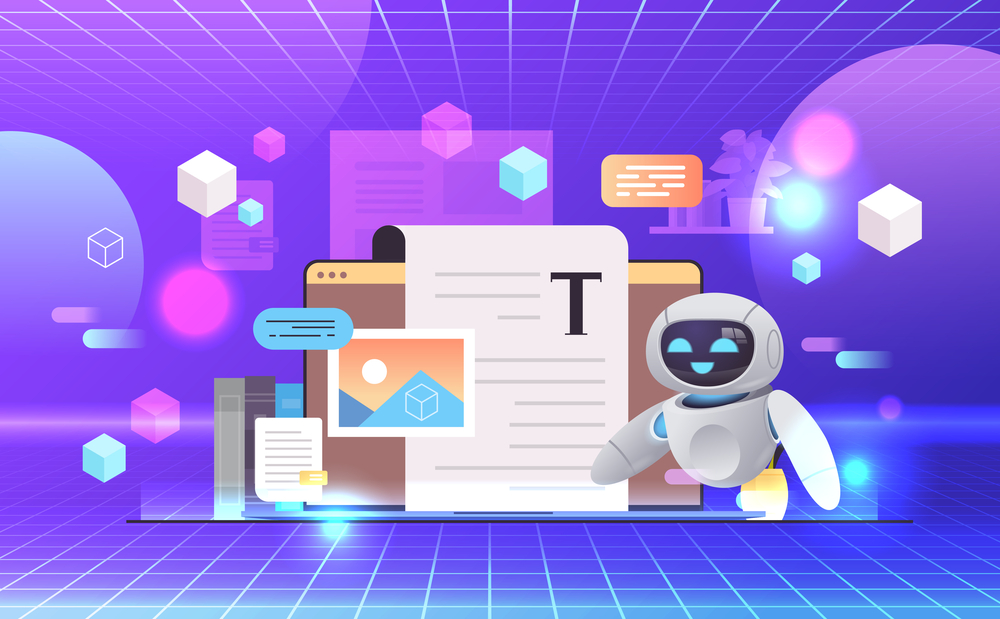
How to Use AI to Improve Your Website
By Daclaud Lee – AI Prompt Engineer and SEO Consultant
In the rapidly evolving landscape of online business and digital marketing, harnessing the power of artificial intelligence (AI) has become imperative for staying competitive and engaging with audiences effectively. Integrating AI into website development and optimization strategies offers a myriad of benefits, from enhancing user experiences to boosting search engine rankings and streamlining content management. In this guide, we’ll explore how businesses can leverage AI tools and technologies to elevate their websites, drive traffic, and achieve their online goals. Whether you’re a seasoned web developer or a business owner looking to enhance your online presence, understanding how AI can improve your website is essential in today’s digital age.
Revolutionize Your Website with AI
Harnessing the power of artificial intelligence (AI) can revolutionize the way you improve your website, offering insights and efficiencies that were previously unimaginable. One of the key ways AI can enhance your website is through personalized user experiences. By analyzing user behavior and preferences, AI can tailor content, product recommendations, and interfaces to individual users, significantly improving engagement and conversion rates. Imagine a website that intuitively understands what your visitors are looking for and delivers it seamlessly—AI makes this possible by dynamically adjusting to each user’s unique needs.
In addition to personalization, AI can greatly enhance your website’s search engine optimization (SEO) efforts. AI-powered tools can analyze vast amounts of data to identify the most effective keywords, content strategies, and backlink opportunities. These tools can provide real-time feedback and suggestions, helping you to continually optimize your site for search engines and stay ahead of your competition. Moreover, AI can help you monitor your website’s performance, identifying areas for improvement and potential issues before they become significant problems, ensuring your site remains fast, efficient, and user-friendly.
AI can also streamline your content creation and management processes. AI-driven content generators can help produce high-quality, relevant content at scale, saving you time and resources. These tools can suggest topics, headlines, and even entire articles based on trending data and user interests. Additionally, AI can assist in content curation by identifying and promoting the most relevant and engaging pieces to your audience. By integrating AI into your content strategy, you can maintain a steady flow of fresh, compelling content that keeps your audience engaged and coming back for more. With AI, improving your website becomes a more efficient and effective endeavor, driving better results for your business.

Harness the Power of AI with Elementor for Effortless Website Design
Elementor, a leading website builder for WordPress, has embraced the power of artificial intelligence (AI) to offer innovative tools that streamline the website creation process. One notable feature is Elementor’s AI-powered design assistance, which helps users create stunning and professional-looking websites effortlessly. With AI algorithms analyzing design trends and user preferences, Elementor suggests layout options, color schemes, and typography choices that are both aesthetically pleasing and user-friendly, empowering users to design visually stunning websites without the need for advanced design skills.
Moreover, Elementor’s AI tools extend beyond design assistance to offer intelligent content management capabilities. Through advanced algorithms, Elementor can analyze website content and recommend ways to improve readability, SEO, and engagement. From suggesting keyword optimizations to identifying opportunities for better content organization, Elementor’s AI-powered content management tools help users create websites that not only look great but also perform well in search engine rankings and attract more visitors.
In addition to design and content management, Elementor’s AI capabilities also enhance website performance optimization. By analyzing website data and user behavior patterns, Elementor can provide insights into website speed, performance bottlenecks, and opportunities for optimization. With AI-driven recommendations for caching, image optimization, and code efficiency, Elementor empowers users to optimize their websites for faster load times, better user experience, and improved search engine rankings. Overall, Elementor’s integration of AI tools revolutionizes the website creation process, making it easier and more efficient for users to design, manage, and optimize their websites for success.

Adobe Photoshop’s AI Features for Easy Image Editing
Adobe Photoshop has raised the bar yet again with its innovative new AI tools, ushering in a new era of creativity and efficiency for digital artists and designers. One standout feature is the AI-powered object selection tool, which harnesses machine learning algorithms to accurately and intelligently select objects in images. With this tool, users can quickly and precisely select complex objects like hair, fur, and foliage with just a few clicks, saving valuable time and effort in the editing process.
Another game-changing addition is the AI-powered neural filters, which open up a world of creative possibilities for Photoshop users. These filters leverage the power of artificial intelligence to apply complex effects and adjustments to images with unparalleled precision and realism. From enhancing facial expressions to transforming landscapes, the neural filters offer an intuitive and interactive way to experiment with various artistic styles and techniques, empowering users to push the boundaries of their creativity like never before.
Moreover, Adobe Photoshop’s AI tools extend beyond image editing to offer intelligent assistance throughout the creative process. With features like AI-powered content-aware fill and automatic sky replacement, Photoshop simplifies tedious tasks and helps users achieve professional results with ease. Whether you’re a seasoned professional or an aspiring artist, Adobe Photoshop’s new AI tools provide a powerful toolkit for unleashing your creativity and bringing your visions to life in ways you never thought possible.

Use Midjourney To Create Custom Graphics
Midjourney is a revolutionary platform that empowers users to create custom graphics with ease and efficiency. With its intuitive interface and extensive library of design elements, Midjourney makes graphic design accessible to everyone, regardless of their skill level or experience. Whether you’re a seasoned designer looking to streamline your workflow or a novice seeking to bring your creative vision to life, Midjourney provides the tools and resources you need to create stunning graphics for any purpose.
One of the standout features of Midjourney is its vast collection of customizable templates, which cover a wide range of design needs, from social media posts to presentations to marketing materials. Users can simply choose a template that fits their project, customize it with their own text, images, and colors, and download the finished graphic in minutes. This streamlined process eliminates the need for complex design software and allows users to create professional-quality graphics quickly and efficiently.
Moreover, Midjourney offers advanced features such as AI-powered design suggestions and predictive analytics, which help users optimize their designs for maximum impact and effectiveness. By analyzing user behavior and design trends, Midjourney provides valuable insights and recommendations to help users create graphics that resonate with their audience and achieve their goals. With Midjourney, anyone can become a skilled graphic designer and unleash their creativity with confidence.
AI Explained: A Beginner’s Guide to Artificial Intelligence
Artificial intelligence (AI) is a branch of computer science that focuses on creating systems capable of performing tasks that typically require human intelligence. At its core, AI seeks to replicate human cognitive abilities, such as learning, problem-solving, perception, and decision-making, using algorithms and computational models. These AI systems can analyze large datasets, recognize patterns, and make predictions or decisions based on the data they process.
There are two primary types of AI: narrow AI and general AI. Narrow AI, also known as weak AI, is designed to perform specific tasks or solve particular problems within a limited domain. Examples of narrow AI include virtual assistants like Siri or Alexa, recommendation algorithms used by streaming services, and facial recognition software. In contrast, general AI, or strong AI, refers to AI systems with human-level intelligence across a wide range of tasks and domains. While general AI remains a theoretical concept and has not yet been achieved, it represents the ultimate goal of AI research and development.
AI encompasses various subfields and techniques, including machine learning, natural language processing, computer vision, and robotics, among others. Machine learning, in particular, has emerged as a dominant approach within AI, enabling systems to learn from data and improve their performance over time without explicit programming. Whether it’s powering virtual assistants, driving autonomous vehicles, or optimizing business operations, AI continues to drive innovation and transform industries across the globe.










